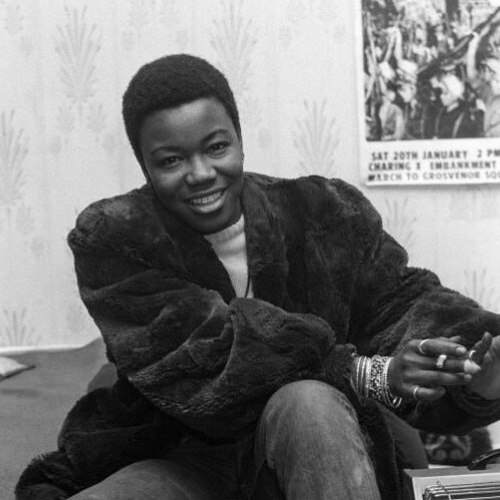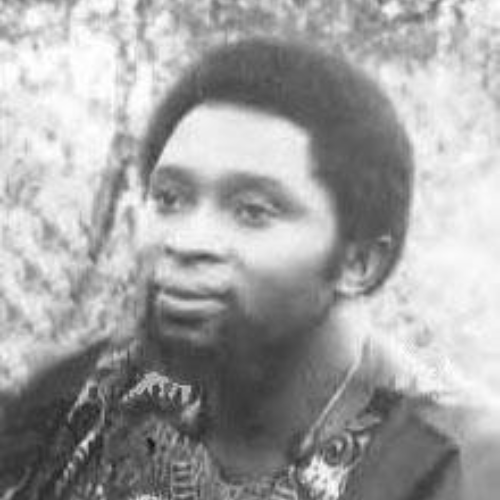10 Black British Civil Rights Activists
The Black British civil rights movement was an undeniable force for change. The courage and fight of these men and women that brought about racial equality for Black people in Britain must be remembered and celebrated.
1. Dame Jocelyn Barrow (1929-2020)
Barrow was an educator, community activist and politician. She is mostly remembered for her position as the General Secretary of the Campaign Against Racial Discrimination (CARD), being the first Black woman to be Governor of the BBC and founder and Deputy Chair of the Broadcasting Standards Council.
Born in Trinidad, she moved to the UK in the 1950s, where she witnessed systemic racism in education, work, and housing. She co-founded the Campaign Against Racial Discrimination (CARD) in 1964, which helped shape the passing of the UK’s first Race Relations Acts. A tireless advocate for equality, she worked to break down barriers for Black children in schools, fought workplace discrimination, and promoted intercultural understanding across Britain. She was honoured as a Dame in 1992 for her services to education and broadcasting.
Dame Jocelyn Barrow
2. Altheia Jones- LeCointe (b.1945)
Altheia Jones-LeCointe (born 1945) is a Trinidadian-born physician, activist, and central figure in the British Black Power movement of the 1970s. After moving to London to study science, she became a leading member of the British Black Panther Movement, where she was instrumental in organising campaigns against police brutality, racist housing policies, and educational discrimination. Known for her sharp intellect and fiery oratory, she played a key role in politicising and mobilising Britain’s Black communities at a time of widespread hostility and marginalisation.
She is best remembered as one of the Mangrove Nine, a group of activists tried in 1970 following protests against repeated police raids on the Mangrove Restaurant in Notting Hill. Acting as her own defence, Jones-LeCointe used the courtroom to expose systemic racism within the Metropolitan Police, and the case marked the first judicial acknowledgment of racial prejudice in the force.
Altheia Jones- LeCointe
3. Darcus Howe (1943-2017)
Broadcaster, writer, journalist and civil rights activist. Howe was mentored by his uncle the great writer C.L.R. James. He was a member of the British Black Panthers. And he led the protest for the famous Mangrove 9.
Darcus moved to the UK in the 1960s, where he became active in the British Black Panther Movement and was a central organiser in the fight against racism, police harassment, and social inequality. A sharp thinker and fearless campaigner, Howe blended grassroots activism with intellectual critique, helping to give a political voice to Britain’s Black communities.
He rose to national prominence as one of the Mangrove Nine, where alongside other activists he successfully exposed police racism during their landmark 1970 trial. Beyond direct activism, Howe reached wider audiences through journalism, community organising, and his provocative work as a broadcaster. Programmes such as Devil’s Advocate and The Bandung File showcased his ability to challenge Britain to confront its colonial legacy and racial injustices.
Darcus Howe
4. John La Rose (1927-2006)
John moved to Britain in 1961 from Trinidad and in 1966 founded the New Beacon Books; which was the first specialist Caribbean publishing company in the UK. That same year he co-founded the Caribbean Activist Movement (CAM). He was also heavily involved in the Black Education Movement.
He was deeply involved in campaigning against racial discrimination in education, founding the George Padmore Supplementary School and playing a key role in the Black Education Movement. He also chaired organisations like the Institute of Race Relations and the New Cross Massacre Action Committee. Through his tireless work in publishing, education, and activism, John helped forge a network of resistance and cultural pride for Black communities across Britain.
John La Rose
5. Olive Morris (1952 -1979)
Olive was a Jamaican-born British activist and community leader who became a powerful voice in the Black Power, feminist, and squatters' rights movements of the 1970s. Migrating to South London as a child, she co-founded the Brixton Black Women’s Group and the Organisation of Women of African and Asian Descent (OWAAD), fighting against racism, sexism, poor housing, and police harassment. Morris was also active in the British Black Panther movement and played a key role in squatting campaigns, using housing as a political tool to challenge inequality. Her life was tragically cut short by illness at 27, but she continues to be remembered, especially in Brixton where she is honoured with a blue plaque at 121 Railton Road, where she lived as a squatter and hosted study groups in the 1970s.
Olive Morris
6. Louis Mahoney (1938-2020)
Mahoney was a Gambian born actor, that lived in London. He was a long-time campaigner for racial equality within the acting profession. He represented African-Asian members on the council of the actors' union, Equity. He was also one of the first Black actors in the Royal Shakespeare Company.
He originally came to the UK to study medicine, but shifted his career to acting. He appeared in numerous television series and films, including Doctor Who, Fawlty Towers, and Cry Freedom. As a campaigner for racial equality within the performing arts, he co-founded Performers Against Racism to oppose apartheid and serving as joint Vice-President of the actors’ union Equity. Throughout his life, Mahoney used his platform to challenge racial prejudice in British media and society, speaking out against stereotypical portrayals and pushing for inclusive casting.
Louis Mahoney
7. Alex Pascall (b.1936)
Alex is a Grenadian-born British broadcaster, musician, composer, and cultural activist known for establishing a Black presence in British media. He was a pioneering presenter of Black Londoners, the first daily Black radio programme on BBC Radio London from 1974 to 1988, which became a vital platform for discussing issues affecting Black communities. Over the 14 years on air, guests included Muhammad Ali, Bob Marley, C.L.R James, Jeremy Corbyn and Angela Davis. Pascall also co-founded Britain’s first national Black newspaper, The Voice, and played a major role in developing the Notting Hill Carnival, chairing its Carnival and Arts Committee in the 1980s. He has since gone on to be an influential educator, oral historian, and playwright, dedicated to promoting Caribbean folk arts, history, and cultural pride in Britain.
Alex Pascall
8. Obi Benue Egbuna (1938-2014)
Obi was a Nigerian-born novelist, playwright, and political activist who played a foundational role in the British Black Power movement. After moving to the UK in 1961, he became a prominent figure in radical activism, founding the Universal Coloured People's Association (UCPA) in 1967 and later the British Black Panther Movement in 1968. Influenced by Marxist and Black Power ideology, he advocated for armed self-defense, anti-capitalism, and global racial justice, organising protests and publishing influential texts such as Destroy This Temple: The Voice of Black Power in Britain (1971).
Obi’s activism included confronting police brutality and systemic racism, notably through campaigns around the Mangrove restaurant police raids that led to the Mangrove Nine trial. Though his leadership of the Panthers was relatively brief, his efforts ignited continued grassroots organising in Black British communities.
Obi Benue Egbuna
9. Lenford Alphonso Garrison (1943-2003)
Lenford was a Jamaican-born British educationalist, historian, and community activist whose life’s work focused on documenting Black British history and promoting multicultural education. He founded the African and Caribbean Educational Resource (ACER) in the 1970s to provide Black history educational materials to schools, fostering a sense of identity and pride among Black British children. Garrison co-founded the Black Cultural Archives in Brixton, which became a vital centre for preserving and sharing the histories and experiences of African and Caribbean communities in the UK.
Lenford also worked to support the arts and community mentoring programs, notably through his leadership of Afro-Caribbean Family and Friends in Nottingham. He was instrumental in establishing East Midlands African Caribbean Arts and spearheaded initiatives like the Young Penmanship awards, which helped launch the careers of several Black British writers and professionals.
Lenford Alphonso Garrison
10. Leila Hassan Howe (b.1948)
Tanzanian born Leila Howe is a British editor, writer and activist. She was a founding member of the Race Today Collective in 1973 and served as deputy editor and later editor of its influential journal, Race Today. Hassan Howe was instrumental in campaigning for racial justice, including organising the Black People's Day of Action march in 1981, which marked a pivotal moment in British history following the New Cross Fire tragedy.
Her activism extended to fighting for workers’ rights, cultural recognition of events like the Notting Hill Carnival, and challenging systemic racism through grassroots organising and media. She worked alongside other key Black women activists of the period and helped steer Race Today as a powerful platform for Black radical politics. In recognition of her lifelong contributions, she was awarded an honorary fellowship from Goldsmiths, University of London, in 2023.
Leila Hassan Howe











